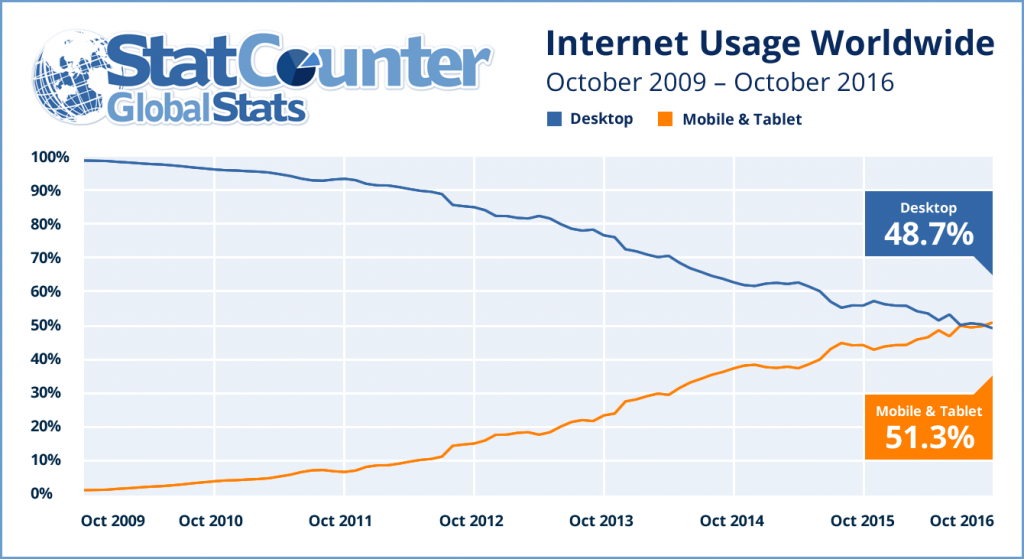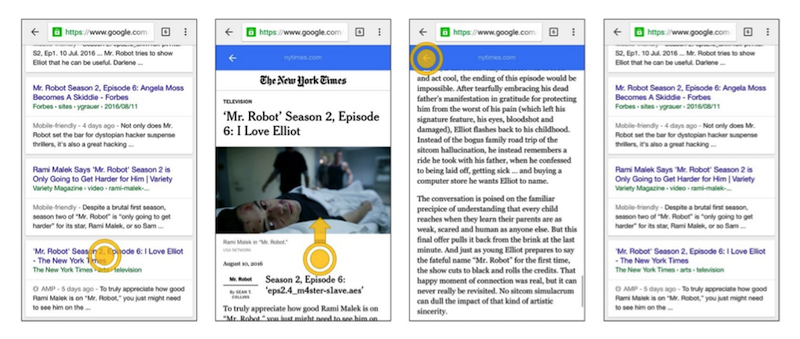Five most important search marketing news stories of the week
Welcome to our weekly round-up of all the latest news and research from around the world of search marketing and beyond.
This week, mobile internet use takes over desktop across the globe, Instagram introduces yet more shopping options and Bing reveals search habits immediately after a presidential debate.
Worldwide mobile internet use surpasses desktop for the first time ever
As we reported this week, mobile and tablet devices accounted for 51.3% of internet usage worldwide in October compared to 48.7% by desktop.

Although don’t get to excited, as there is a huge difference from country to country, with the US and UK still lagging behind other territories.
In the UK, desktop users account 55.6% of the online population, compared to 44.4% on mobile device. In the US the gap is even more pronounced (58% desktop vs 42% mobile).
Despite desktop still clinging on in western countries, it’s the rest of the world that has seen mobile truly dominate. India for example has over 75% internet usage through its mobile devices. In Japan it’s over 76%, and in China mobile accounts over 54% of internet use.
Publishers are struggling with AMP page monetization
As Al Roberts reported this week, many publishers using AMP are seeing their faster mobile pages generate substantially less revenue than their non-AMP mobile pages. According to the Wall Street Journal, “Multiple publishers said an AMP pageview currently generates around half as much revenue as a pageview on their full mobile websites.”

One of the reasons for the lower revenue is likely that while AMP supports around 75 different ad providers, including many of the largest, there are fewer types of ad units available.
“AMP pages rely heavily on standardized banner ad units, and don’t allow publishers to sell highly-customized ad units, sponsorships or pop-up ads as they might on their own properties.” The Wall Street Journal’s Jack Marshall explained.
Instagram tests new shopping feature
As Tereza Litsa reported in ClickZ this week, Instagram has announced that it’s testing new shopping features with 20 US retail brands, including Abercrombie & Fitch, Kate Spade, JackThreads, and Warby Parker. These brands will have access to:
- Tap to view: a new detailed view that showcases up to five products with product descriptions, price and all the relevant information for them
- Shop now: there will be a new link to lead consumers directly to the brand’s website, making the shopping experience easier.
The additions will initially be available to a sample group of people with iOS devices in US. However, Instagram is planning to expand its shopping features globally in the near future, turning the platform into a more powerful tool for ecommerce brands.
Forms now supported in AMP
According to a post on the AMP project blog, support for webforms in AMP HTML has been launched.
“With the “amp-form” extension, the
source https://searchenginewatch.com/2016/11/04/five-most-important-search-marketing-news-stories-of-the-week-10/